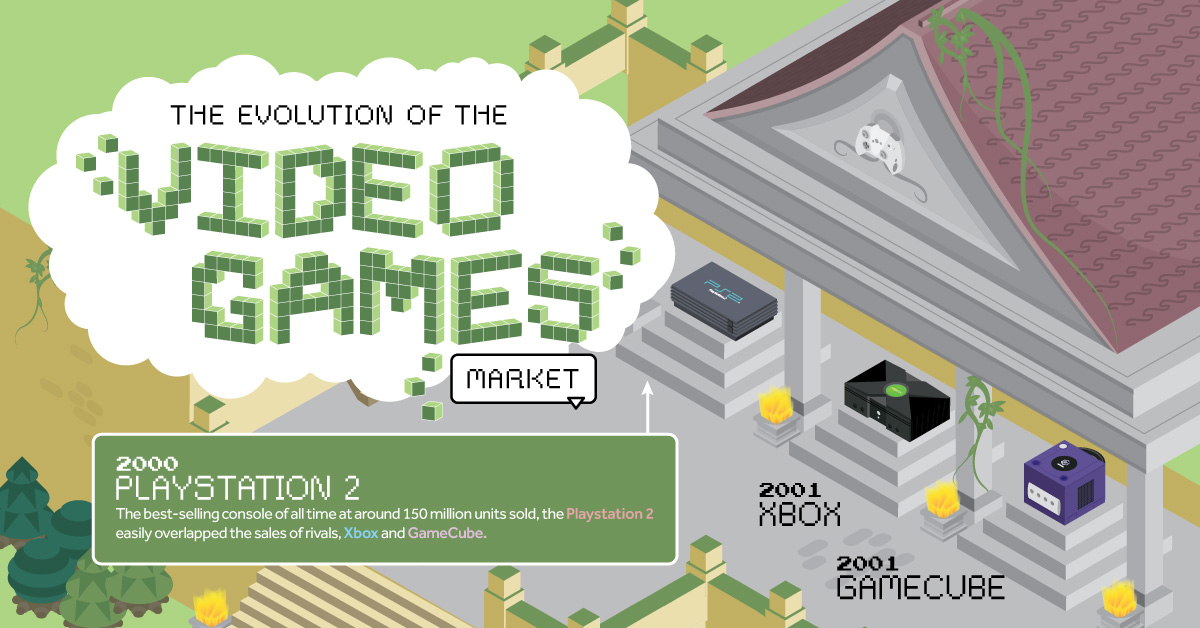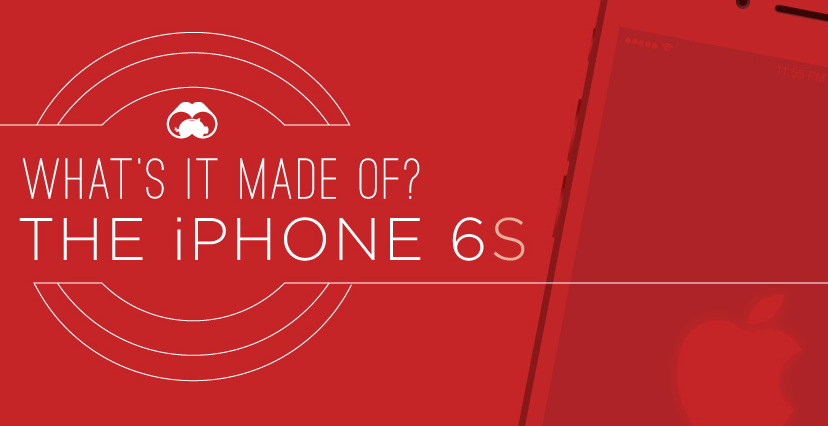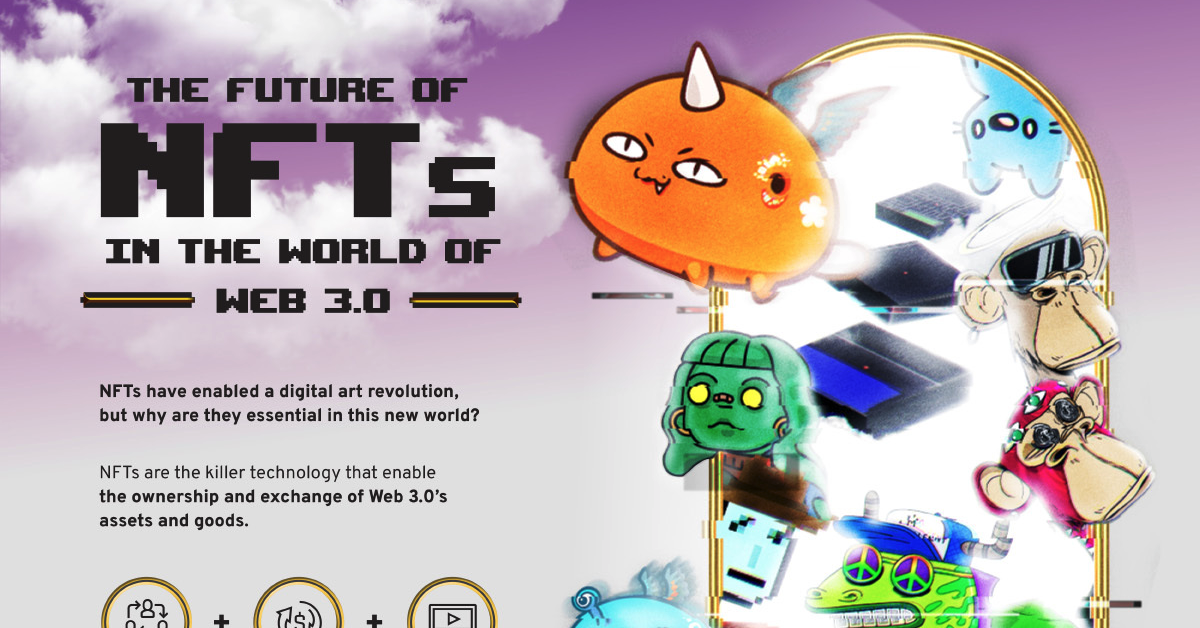The Future of NFTs in the World of Web 3.0
The following content is sponsored by NFT.com

The Future of NFTs in the World of Web 3.0
NFTs took the world by storm in 2021, bringing forth a digital art revolution while becoming one of the fastest growing asset classes of the year.
The technology of non-fungible tokens has enabled artists to offer digital originals without relying on middlemen, all while being able to receive royalties on secondary sales of their work. But this use-case is just the beginning of the functionality non-fungible tokens bring to the blossoming world of web 3.0.
This graphic sponsored by NFT.com showcases the evolving utility of NFTs, and how they are already building communities, enabling unique and tradeable game assets, and laying the foundations for ownership and identity in the metaverse.
How NFTs are Revolutionizing Digital Ownership Today
NFTs provide a complete history and proof of ownership for digital assets or any other asset that is represented by a non-fungible token. This functionality enables the creation of unique digital assets and items that anyone can buy or sell freely on an open marketplace.
Today NFTs have already evolved to provide further utility across a variety of industries:
- Keys to digital communities
- Tradeable game assets
- Ownership of your username and assets in the metaverse
As the online world shifts from web 2.0 to web 3.0, NFTs are building the foundations of digital communities, economies, and assets.
1. NFTs as Keys to Online Communities and Events
One of the first evolutions in NFT use-cases came in the form of using non-fungible tokens as “membership passes” to a digital community. Ownership of NFT profile picture collections like CryptoPunks and Bored Ape Yacht Club (BAYC) naturally became linchpins around which communities of holders formed.
Today, profile picture NFT collections like Oni Ronin have built on this idea, providing access to exclusive workshops and ceremonies, free airdrops of other NFTs, and prize raffles for holders of the Oni Ronin NFT collection.
Along with access to online communities and events, NFTs have been used to provide exclusive access to in-person events. Since NFTs provide immutable proof of ownership on the blockchain, the technology is primed to solve large issues in the world of event ticketing like forging and digital theft.
2. Productive and Exchangeable Game Assets
Gaming is one of the key sectors where NFTs have been providing utility for players by enabling ownership of purchased in-game assets. Projects like DeFi Kingdoms on the Harmony blockchain have NFTs “heroes”, that players can buy, sell, and rent out on an open market.
Along with providing ownership for the in-game asset, these NFTs are also productive assets, and can be sent on quests where they earn in-game items and cryptocurrency for the player. These items can be exchanged for cryptocurrency, or used to craft other items to power up heroes.
The integration of NFTs into blockchain games like DeFi Kingdoms, Axie Infinity, and Crabada has created vibrant in-game economies where NFTs are valued based on their attributes and statistics that dictate the amount of cryptocurrency they earn. Playtime is rewarded in these games, as levelling up NFT assets results in increased earnings and higher chances of rare and valuable item drops.
3. Redefining Digital Identities and Assets
Worried about someone taking your username in the metaverse? NFTs have already enabled ownership of custom “.eth” Ethereum wallet addresses through Ethereum Name Service (ENS), with more than 671,000 unique “.eth” addresses registered so far.
As an NFT, these custom addresses are integrated in other decentralized applications and simplify previously complex wallet addresses to be personalized and much easier to remember.
Rather than a long string of numbers and letters like “0x0079784df055a06EC5A76A90b24”, ENS allows for much simpler wallet addresses like “visualcapitalist.eth”.
Other projects like NFT.com are using NFTs to provide users with custom ownership of a personal profile like “www.nft.com/yourname”, where users can show and share their NFTs on a decentralized social network.
Enabling Ownership in the Metaverse Economy
Along with usernames and wallet addresses, non-fungible tokens are becoming the foundational technology for assets in the metaverse. Metaverse project, The Sandbox, is already using NFTs to represent digital land, items like furniture and decor for virtual spaces, and much more.
In March of 2022, The Sandbox generated more than $24 million in sales of NFTs representing metaverse real estate, with top brands and celebrities across sectors like Atari, Snoop Dogg, and the South China Morning Post all owning plots of digital land.
NFTs have only just begun to revolutionize the ownership and exchange of digital assets, and are laying the foundations for digital communities, tradeable in-game assets, and the economy of the metaverse.
>> NFT.com is building the decentralized social network of the NFT world, governed and owned by the community.
-

 Sponsored3 years ago
Sponsored3 years agoMore Than Precious: Silver’s Role in the New Energy Era (Part 3 of 3)
Long known as a precious metal, silver in solar and EV technologies will redefine its role and importance to a greener economy.
-

 Sponsored7 years ago
Sponsored7 years agoThe History and Evolution of the Video Games Market
Everything from Pong to the rise of mobile gaming and AR/VR. Learn about the $100 billion video games market in this giant infographic.
-

 Sponsored8 years ago
Sponsored8 years agoThe Extraordinary Raw Materials in an iPhone 6s
Over 700 million iPhones have now been sold, but the iPhone would not exist if it were not for the raw materials that make the technology...
-

 Sponsored8 years ago
Sponsored8 years agoThe Industrial Internet, and How It’s Revolutionizing Mining
The convergence of the global industrial sector with big data and the internet of things, or the Industrial Internet, will revolutionize how mining works.


